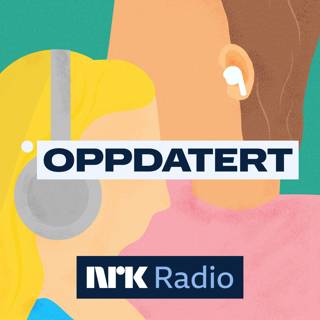
Mega Edition: Security Concerns or Bureaucratic Convenience? Maxwell’s Sudden Relocation (12/23/25)
Skepticism about the “security concerns” explanation has grown precisely because it relies so heavily on implication rather than documented fact. While it was hinted that Ghislaine Maxwell’s safety was at risk after her DOJ meeting, neither the Bureau of Prisons nor prosecutors ever provided concrete evidence of a specific, credible threat necessitating an interstate transfer. High-profile inmates routinely meet with federal authorities without being uprooted across the prison system, and vague references to “safety” are a standard, catch-all justification that conveniently avoids scrutiny. In Maxwell’s case, the absence of incident reports, disciplinary records, or disclosed threats raises the possibility that the security narrative functioned more as a smokescreen than a genuine explanation.A more plausible interpretation is that the move was driven by administrative, legal, or strategic considerations unrelated to imminent danger—such as managing media exposure, controlling access to Maxwell, or placing her in a facility better suited for isolation, monitoring, or long-term housing. Transfers framed as protective measures often coincide with moments when the government wants tighter control over an inmate’s environment, communications, or visibility rather than out of fear for their life. Seen through that lens, the timing of Maxwell’s relocation after her DOJ meeting may say less about threats against her and more about institutional risk management by the Department of Justice and the Bureau of Prisons. In short, the “safety” explanation remains unproven, untested, and entirely dependent on official silence—hardly a reassuring foundation for such a consequential move.to contact me:bobbycapucci@protonmail.comBecome a supporter of this podcast: https://www.spreaker.com/podcast/the-moscow-murders-and-more--5852883/support.
24 Des 31min

Mega Edition: Les Wexner And His Decades Long At The Top Of The Heap In Ohio (12/23/25)
Despite his deep and long-standing ties to Jeffrey Epstein, billionaire Les Wexner remains an almost untouchable figure in Columbus, Ohio—revered as a philanthropic titan and regional kingmaker. Wexner, the founder of L Brands and the man behind Victoria’s Secret, has wielded enormous influence over the city’s economic and cultural landscape for decades. From hospitals to art centers to Ohio State University, his name is etched into nearly every major institution, with donations totaling hundreds of millions. This civic dominance has insulated him from the level of scrutiny other Epstein-linked figures have received. In Columbus, Wexner is not just a businessman—he’s a legacy, a power broker whose wealth and prestige have bought loyalty, silence, or both.But beneath the surface, that reverence is increasingly uncomfortable. Epstein once held power of attorney over Wexner’s finances, lived in a Wexner-owned mansion, and was given an unusual level of control over Wexner’s personal and professional affairs—facts that have raised serious questions about just how much Wexner knew and when. Yet in Columbus, public officials and institutional leaders rarely speak of it. The media coverage is polite, the criticism muted, and the donor gratitude eternal. It’s as if the city made a conscious choice to separate Wexner the benefactor from Wexner the enabler, ignoring the fact that his empowerment of Epstein may have been a central piece of the larger abuse machinery. In any other city, he might be scrutinized. In Columbus, he’s still the king.to contact me:bobbycapucci@protonmail.comhttps://www.columbusmonthly.com/story/lifestyle/features/2022/10/25/what-jeffrey-epstein-scandal-means-to-columbus-and-les-wexner/69589703007/Become a supporter of this podcast: https://www.spreaker.com/podcast/the-moscow-murders-and-more--5852883/support.
24 Des 49min

Maureen Comey Has Been Fired In The Wake Of The Diddy Trial And Blowback Over Epstein
Maureen Comey, a federal prosecutor and daughter of former FBI Director James Comey, was recently removed from her position following a series of high-profile prosecutorial failures, most notably her handling of the Sean “Diddy” Combs case and the ongoing fallout from the Jeffrey Epstein investigation. In the Diddy case, despite mounting public allegations, corroborating testimony, and a sprawling federal investigation, Comey failed to secure a conviction on key charges—prompting criticism from within the DOJ and from the public, who viewed it as yet another instance of the wealthy and powerful skirting justice. Her role in the Epstein and Ghislaine Maxwell matters had already drawn skepticism, particularly over the slow pace of disclosures and missing evidence. Combined, these failures painted a picture of a prosecutor either unwilling or unable to push cases against elite defendants across the finish line.Comey's dismissal is being viewed by many as symbolic of a broader institutional failure. For years, she was positioned as a central figure in prosecutions that promised accountability for Epstein’s network of enablers, yet few meaningful outcomes followed. The fact that she is now gone—without fanfare, without accountability, and without explanation—only fuels suspicions that her presence was more about containment than prosecution. Her firing doesn’t feel like justice—it feels like an after-the-fact cleanup, a quiet reshuffling meant to relieve pressure while continuing to protect the same circles that have evaded consequences all along.to contact me:bobbycapucci@protonmail.comsource:DOJ fires Maurene Comey, daughter of James Comey and a prosecutor in Sean Combs' and Ghislaine Maxwell's casesBecome a supporter of this podcast: https://www.spreaker.com/podcast/the-moscow-murders-and-more--5852883/support.
24 Des 13min

The USVI Gets The Greenlight To Amend The Lawsuit
The United Stated Virgin Islands has benn given the greenlight by Judge Rakoff to amend their lawsuit against JP Morgan and add an obstruction complaint. JP Morgan argued that the USVI should have brought the complaint forward during the original filing, but the Judge slapped down that argument and isntead sided with the USVI allowing the new complaint to be tethered to the original. to contact me:bobbycapucci@protonmail.comsource:V.I. May Add Charge in JPMorgan Suit Over Epstein Dealings, Judge Rules | St. Thomas Source (stthomassource.com)Become a supporter of this podcast: https://www.spreaker.com/podcast/the-moscow-murders-and-more--5852883/support.
24 Des 11min

More Context On Ghislaine Maxwell And Her Lawsuit Against The Epstein Estate
The Epstein estate tried to shut down the lawsuit Ghislaine Maxwell filed against it by arguing that her claims were legally baseless and strategically opportunistic. Maxwell had sued the estate seeking reimbursement for legal fees and protection she claimed Epstein had promised her, but the executors countered that no such binding agreement existed. They portrayed her demand for indemnification as both speculative and self-serving, especially given her criminal conviction and the mountain of evidence tying her to Epstein’s trafficking operation. In their view, Maxwell was attempting to shift responsibility for her own conduct onto a dead man’s estate that already faced enormous financial pressure from survivor settlements and ongoing litigation.To reinforce their position, the estate argued that Maxwell’s lawsuit was essentially an effort to rewrite history—attempting to cast herself as someone entitled to Epstein’s financial shield despite her central role in enabling his crimes. They emphasized that the estate had no obligation to fund her defense, especially when her actions were outside the scope of any legitimate employment or partnership and were, instead, criminal in nature. The executors also noted that satisfying Maxwell’s claims would siphon money away from compensation intended for survivors, contradicting the estate’s publicly stated commitments. Ultimately, their motion to dismiss framed Maxwell’s lawsuit as a legally flimsy maneuver designed to grab resources she was never owed and to distance herself from the consequences of her own conduct.to contact me:bobbycapucci@protonmail.comBecome a supporter of this podcast: https://www.spreaker.com/podcast/the-moscow-murders-and-more--5852883/support.
24 Des 14min

JP Morgan And Their Attempt To Gain Access To Epstein Related Files
JPMorgan Chase, which has been sued by women alleging the bank enabled Jeffrey Epstein’s sex trafficking by maintaining him as a client for years, sought to compel the Manhattan District Attorney’s office to turn over records as part of that lawsuit. The bank issued subpoenas to District Attorney Alvin Bragg’s office for statements made by one of the alleged victims to a prosecutor and other documents that might be relevant to JPMorgan’s defense and its own claims against former executive Jes Staley, who had a friendship with Epstein. JPMorgan argued these records were necessary for its case and that the DA’s office could not shield them through claims of privilege or grand jury secrecy. A federal judge agreed that certain records must be provided to the bank, ruling that the DA’s assertions of privilege did not apply to the specific statements sought.The bank’s efforts to obtain these prosecutor records reflected its broader legal strategy to show it lacked liability and to push back against allegations that it turned a blind eye to Epstein’s criminal conduct. By insisting on access to the DA’s files, JPMorgan aimed to uncover information about what prosecutors knew and when, potentially undermining accusations that the bank failed to act despite warning signs. The ruling that the Manhattan DA’s office must hand over some of these documents marked a significant moment in civil litigation tied to Epstein’s network, highlighting how transactional discovery in Epstein-related lawsuits can reach into prosecutors’ investigatory materials under certain legal conditions.to contact me:bobbycapucci@protonmail.comBecome a supporter of this podcast: https://www.spreaker.com/podcast/the-moscow-murders-and-more--5852883/support.
23 Des 15min

The Unsealed Epstein Grand Jury Transcript From 2019 in New York (Part 2) (12/23/25)
The 2019 New York federal grand jury transcripts capture the final prosecutorial push that led to the arrest of Jeffrey Epstein on sex-trafficking charges in the Southern District of New York. The transcripts reflect prosecutors laying out a sweeping pattern of alleged conduct, including the recruitment and exploitation of underage girls, the use of intermediaries, and the systematic nature of the abuse network. Witness testimony, documentary evidence, and financial records were presented to establish probable cause, directly contradicting the long-standing narrative that Epstein was a lone offender whose crimes were limited to Florida. These proceedings culminated in the July 2019 indictment, marking the first time federal prosecutors in New York formally moved against Epstein despite years of prior allegations and investigative leads.The transcripts have now been newly unsealed under the Epstein Transparency Act, a move that has reignited scrutiny over what federal authorities knew—and when. Their release sheds light on investigative decisions, evidentiary thresholds, and the scope of information presented to the grand jury, while also highlighting gaps that critics argue point to earlier prosecutorial failures. Survivors and transparency advocates have emphasized that the unsealing is significant not only for what it reveals about Epstein’s conduct, but for what it exposes about institutional hesitation, delayed accountability, and the broader protection mechanisms that allowed Epstein to evade federal charges for years. While redactions remain, the disclosure represents a rare window into the mechanics of a case that many believe should have been brought long before 2019.to contact me:bobbycapucci@protonmail.comsource:EFTA00008529.pdfBecome a supporter of this podcast: https://www.spreaker.com/podcast/the-moscow-murders-and-more--5852883/support.
23 Des 11min

The Unsealed Epstein Grand Jury Transcript From 2019 in New York (Part 1) (12/23/25)
The 2019 New York federal grand jury transcripts capture the final prosecutorial push that led to the arrest of Jeffrey Epstein on sex-trafficking charges in the Southern District of New York. The transcripts reflect prosecutors laying out a sweeping pattern of alleged conduct, including the recruitment and exploitation of underage girls, the use of intermediaries, and the systematic nature of the abuse network. Witness testimony, documentary evidence, and financial records were presented to establish probable cause, directly contradicting the long-standing narrative that Epstein was a lone offender whose crimes were limited to Florida. These proceedings culminated in the July 2019 indictment, marking the first time federal prosecutors in New York formally moved against Epstein despite years of prior allegations and investigative leads.The transcripts have now been newly unsealed under the Epstein Transparency Act, a move that has reignited scrutiny over what federal authorities knew—and when. Their release sheds light on investigative decisions, evidentiary thresholds, and the scope of information presented to the grand jury, while also highlighting gaps that critics argue point to earlier prosecutorial failures. Survivors and transparency advocates have emphasized that the unsealing is significant not only for what it reveals about Epstein’s conduct, but for what it exposes about institutional hesitation, delayed accountability, and the broader protection mechanisms that allowed Epstein to evade federal charges for years. While redactions remain, the disclosure represents a rare window into the mechanics of a case that many believe should have been brought long before 2019.to contact me:bobbycapucci@protonmail.comsource:EFTA00008529.pdfBecome a supporter of this podcast: https://www.spreaker.com/podcast/the-moscow-murders-and-more--5852883/support.
23 Des 11min





















